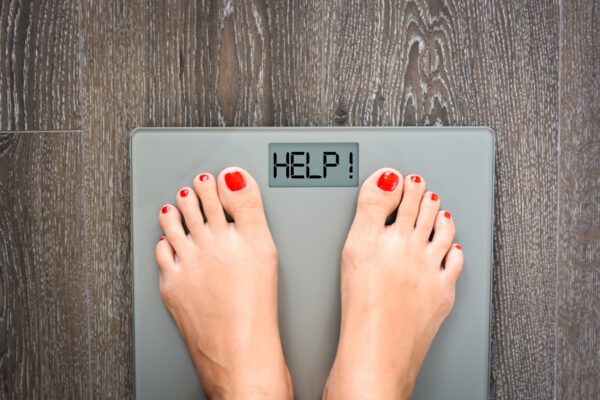3 (Less Than Obvious) Reasons You Can’t Lose Weight – And What To Do About It
You’ve been working your butt off – but your butt’s still there!
Does it seem like nothing is working in your weight loss quest? You’re sweating it out in the gym, cutting back on the calories, and even reducing your alcohol intake, with little or nothing to show for it.
Well, you’re not alone. Millions of people are in the same, sad boat. The ironic thing is that you are very close to nailing this fat loss thing. All you need are a few tweaks to what you’re doing, and you will finally break through. Well, lucky for you, you’re about to discover exactly what those tweaks are.
Sleep is vital to fat loss. Yet, because it is so easy, most people dismiss it as a serious concern (in the same way people dismiss the need for water). Don’t make that mistake.
The quality and quantity of your sleep controls the release of key hormones in your body. The big three are leptin, ghrelin and cortisol.
Lack of sleep leads to lowered leptin levels. Leptin resistance – that is your brain’s inability to read the messages that leptin is sending it - coupled with diminished levels of leptin in your body, leads to weight loss resistance. That means that you will have an inability to lose weight despite how cleanly you eat and how much you exercise. It is this inability to burn fat that is keeping millions of people fat.
Ghrelin is a hormone that is made in the stomach. When Ghrelin is made in our stomach and pumped into our system, we tend to eat more. Ghrelin is responsible for all those times that we reach for snacks or junk food when we know that we’re not really hungry. That’s because Ghrelin is one of the hormones in our body that tells us that we are hungry. Studies have shown how lack of sleep decreases leptin levels and also revealed that sleep deprivation increases the levels of ghrelin. In fact, in order to control your Ghrelin levels, it is absolutely vital that you sleep for at least 7 to 8 hours each night.
Enhanced Ghrelin levels in your body don’t just make you hungry. They also slow down your metabolism as well as decreasing the body’s ability to burn fat.
Cortisol is known as the stress hormone. It is a hormone produced by the adrenal gland in response to stress. Sleep deprivation and the inability to relax the mind and the body tend to keep cortisol production high, which can have negative effects on the body long term.
According to Shawn Talbot, author of the The Cortisol Connection, elevated cortisol levels are a contributing factor in a number of diseases, including obesity.
Until you learn to control these three vital hormones, you will never get on top of your fat loss. To do so, you need to establish a regular sleeping pattern – and stick to it. Keep technology out of the bedroom, make the room as dark and quiet as possible and don’t eat within two hours of retiring.
A lot of people, especially women, are still afraid of using weights to lose weight. They are worried that they’ll build muscle and lose their femininity. This is another huge mistake.
The truth of the matter is that weight training is key to stripping fat off your body. Every ounce of muscle that you add to your body boosts your metabolism. That’s because an ounce of muscle takes five times more energy to preserve than an ounce of fat. Weight training, of course, is the key to building muscle.
Weight training will also shape and strengthen the muscles which give your body its shape. And you don’t have to worry about putting on muscle – women just don’t have the testosterone to get bulky. So, if you are not doing some form of weight training to lose your body fat, it’s high time you started.
While we’re on the subject of muscle, the vast majority of people are sabotaging their fat loss efforts by thinking purely in terms of weight loss. Their total concern is about dropping pounds on the scale.
The problem is that the scale can’t make the distinction between fat and muscle. Now, muscle is five times heavier than fat is. That means that if you lose 5 pounds of fat and gain 1 pound of muscle through weight training, the scale will stay exactly the same. But when you look in the mirror, your body will be looking a whole lot better.
The bottom line is to forget about losing weight and start focusing on losing fat – there’s a big difference!
Here’s a workout you should try:
You are exercising to stress your body and force it to work harder, burn more calories and adapt to its new working environment. It doesn’t take the body long, however, to adapt to a new training challenge. When it does, it no longer sees it as a challenge and stops responding.
In order to keep your body responding you need to constantly present it with new exercise challenges. That means that you should be regularly changing up the actual movements that you do. But you also need to be working to increase the intensity of each workout. You can do this in any of three ways:
- Increase the resistance
- Decrease the rest time
- Increase the repetitions / training time
If you are just going through the motions of your workout, you won’t be giving you body anywhere near enough reason to respond. Only by pushing harder than before will you keep seeing progress.
The three hacks that we’ve identified could be the extra push that you need to get some traction happening on your fat loss. Implement them over the next few weeks by taking your sleep seriously, adding weight training to your program and pushing that little bit harder on each successive training session.
Frequently Asked Questions
Sleep plays a crucial role in regulating hormones that affect hunger and metabolism, such as leptin and ghrelin. Lack of sleep can lead to increased hunger and a slower metabolism, making weight loss more challenging.
To improve your sleep, establish a regular sleep schedule, create a relaxing bedtime routine, and ensure your sleeping environment is comfortable. Aim for 7-8 hours of quality sleep each night to help regulate hormones and support weight loss.
Sleep deprivation affects hormones like leptin, ghrelin, and cortisol. These hormones regulate hunger, stress, and metabolism, and their imbalance can hinder weight loss efforts.
Cortisol, known as the stress hormone, can increase when you're sleep-deprived or stressed. Elevated cortisol levels can lead to weight gain, especially around the abdomen. Managing stress and getting enough sleep can help control cortisol levels.
Yes, improving sleep can help overcome a weight loss plateau. Quality sleep helps regulate hormones that control appetite and metabolism, potentially breaking through stubborn weight loss barriers. For more tips, see How to Overcome a Fitness Plateau.
A common misconception is that sleep is not as important as diet and exercise for weight loss. However, sleep is crucial for regulating hormones that affect hunger and metabolism. Ignoring sleep can undermine your weight loss efforts.
You can find effective workouts to support your weight loss journey on the Gymaholic App, which offers a variety of plans and tracking features to help you stay on track.

